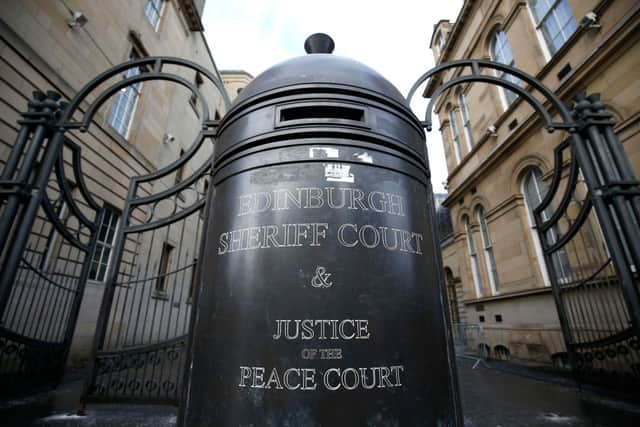Not proven verdict Scotland: controversial ruling explained - is it going to be scrapped in Scottish courts?
and live on Freeview channel 276
The not proven verdict is set to be scrapped in Scottish courts as part of a number of reforms made to the justice system in Scotland as outlined by the newly published Victims, Witnesses and Justice Reform (Scotland) Bill.
The bill will also introduce other changes, such as reducing the size of criminal juries from 15 to 12. A pilot will also be held that would see rape and attempted rape trials to be held without a jury.
This is everything you need to know.
What is the not proven verdict?
Advertisement
Hide AdAdvertisement
Hide AdIn Scottish criminal trials, there are three verdicts available - guilty, not guilty and not proven. Not proven is unique to Scottish courts, and should a not guilty or not proven verdict be returned by a jury, the result is effectively the same in that the accused is acquitted and generally cannot be tried again.
Described as the “bastard verdict” by Sir Walter Scott as far back as the 1820s, Scotland’s not proven verdict has long been controversial and difficult to define.


The Scottish government explains: “There is no statutory, case law or generally accepted definition of the not proven verdict, nor of the difference between the not proven and not guilty verdicts. There have been occasions where judges have attempted to explain the significance of the two acquittals, but this has resulted in appeals on the grounds of misdirection.”
As such, the Appeal Court has instructed judges not to attempt to describe the difference in verdicts to juries, stating that “in our view it is highly dangerous to endeavour to explain what the not proven verdict is in relation to the not guilty verdict”.
Advertisement
Hide AdAdvertisement
Hide AdGenerally speaking, the not proven verdict is used by juries in cases where there is a belief that the defendant is guilty of the alleged offence, but there has been insufficient evidence provided by the Crown to prove it as fact.
Is it getting scrapped?
The Bill to scrap Scotland’s not proven verdict and make a number of changes to the justice system has been published. The Victims, Witnesses and Justice Reform (Scotland) Bill will also change the size of criminal juries from 15 to 12.
It aims to address a number of issues around serious sexual offences, creating a new specialist sexual offences court. Ministers will also have the power to carry out a pilot of rape trials being conducted by a single judge without a jury.
For jury trials, the majority needed for a guilty verdict will be at least two-thirds.
Advertisement
Hide AdAdvertisement
Hide AdLast year, former Scottish First Minister Nicola Sturgeon committed to abolishing the third verdict in the Scottish legal system. Discussions around Scotland’s third verdict have been going on for years.


The verdict is unique to Scots law and there is no equivalent in other jurisdictions.
Justice Secretary Angela Constance said: “This Bill will put victims and witnesses at the heart of the justice system. It is testament to the efforts of many campaigners who have worked to ensure that the processes of justice better serve victims, witnesses and vulnerable parties.
“This landmark legislation is among the most significant since devolution and will ensure fairness is cemented into the bedrock of Scotland’s modern-day justice system. Building on the experiences of survivors, victims and their families, these key reforms will make justice services more sensitive to the trauma it can cause.
Advertisement
Hide AdAdvertisement
Hide Ad“This government has been clear we must take action to improve the experience of those who suffer sexual abuse. The majority are women, who must be supported to have trust and confidence that the processes of justice will serve their needs, allow them to give their best evidence and support them in their recovery.”


She also hailed the creation of a new independent commissioner for victims and witnesses.
Earlier, the chief executive of Rape Crisis Scotland welcomed plans to scrap the not proven verdict, saying she has “no doubt that guilty men are walking free”.
Speaking to the BBC’s Good Morning Scotland radio programme, Sandy Brindley said the changes were a “really positive development”.
Advertisement
Hide AdAdvertisement
Hide AdHowever, advocate Thomas Ross KC took the opposite view, saying jurors should be trusted to carry out the job they have been given.
He told the programme: “I work with prosecutors every day, I don’t hear them saying that they’re concerned about the conviction rate. I hear it every time Sandy’s invited to come on one of these programmes.”
Previously, the Law Society has warned there could be an increase in miscarriages of justice if not proven is scrapped as a verdict.
